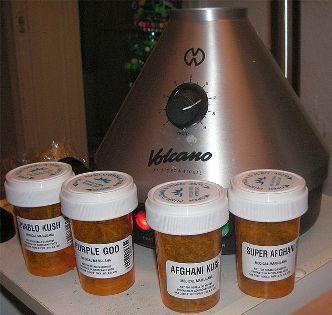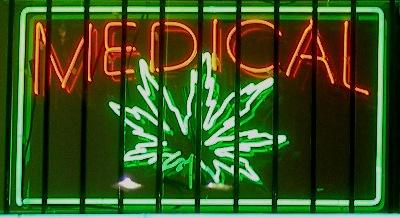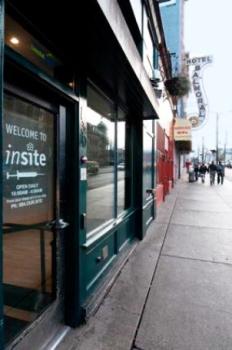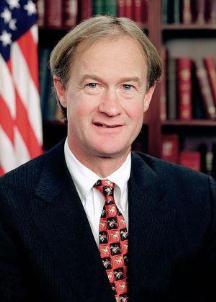Latest
Montana Medical Marijuana Initiative Makes Ballot
"No More Drug War" Rally Update
Hey "No More Drug War" rally supporters,
Gainesville Hemp Fest
Visit http://gvillehempfest.com for further information.
Scottish Needle Exchange Conference
Scottish Needle Exchange Conference
'Working Together'
Stirling Highland Hotel, Stirling, Scotland
WEDNESDAY 9TH NOVEMBER
The conference is the inaugural Scottish Needle Exchange Conference held to support the implementation of the first national needle exchange contract.
The primary aim of the conference is to communicate on a Scottish wide basis, trends within the needle exchange arena, and to support best practice, working together.
Visit http://www.snxc.org for further information.
Advocates Hope Ken Burns/ PBS Prohibition Doc Provokes Debate
Drug Policy Alliance
For Immediate Release: September 30, 2011
Contact: Tony Newman
New Ken Burns PBS Documentary “Prohibition” to Air October 2nd– 5th
Advocates Hope Spotlight on Failed Alcohol Prohibition Will Provoke Debate on Drug Prohibition, Black Market Violence and the Criminalization of More Than a Hundred Million Americans
The history of our country’s disastrous period of alcohol prohibition will be broadcast into homes across America this weekend when PBS airs Ken Burns and Lynn Novick’s Prohibition, a three part series on America’s failed “noble experiment” of banning alcohol.
Drug policy advocates are thrilled that filmmakers of the stature of Ken Burns and Lynn Novick have taken on this topic – and hope that the series reminds Americans about the futility of prohibition and its devastating collateral consequences.
“Alcohol prohibition didn’t stop people from drinking any more than drug prohibition stops people from using drugs,” said Tony Newman, director of media relations at the Drug Policy Alliance. “But prohibition did lead to Al Capone and shoot-outs in the streets. It is the same today. It is not the marijuana or coca plants that have caused 50,000 deaths in Mexico over the last 5 years – but because they plants are illegal and thus unregulated, people are willing to kill each other over the profit that can be made from them.”
"Making drugs illegal has created a violent criminal market where cartels battle it out to control territory in much the same way gangsters did during alcohol prohibition," said Neil Franklin, a retired Baltimore narcotics cop and executive director of Law Enforcement Against Prohibition. "The one major difference between the two prohibitions is that we came to grips with the failure of our experiment to ban alcohol after just 13 years, while the 'drug war' that President Nixon declared 40 years ago is still being prosecuted, more harshly and expensively than ever."
“My two sons have struggled with addiction. My family has experienced not only the devastation of this life-threatening disease, but also the destructive effects of punitive prohibitionist policies and incarceration,” said Gretchen Burns Bergman, lead organizer of Moms United to End the War on Drugs. “Mothers were instrumental in ending alcohol prohibition in the 30s, not because they wanted to encourage alcohol use, but because they wanted to end the gangland violence and loss of lives caused by organized crime, fueled by prohibition. Moms are needed to join the movement to end the violence, mass incarceration and overdose deaths that have resulted from prohibition and the failed war on drugs.”
No Evidence Medical Marijuana Dispensaries Cause Crime, RAND Study Finds
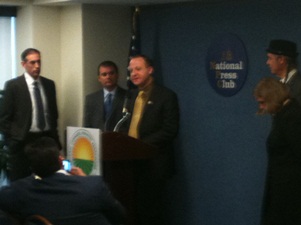
Marijuana Dispensaries Are Buying Safes to Store Cash After Feds Scare Away Banks
[image:1 align:right caption:true]We've reported this year on moves taken by the feds this year in California and Colorado putting
Ailsa Chang, the WNYC reporter who broke the recent New York Police Department marijuana a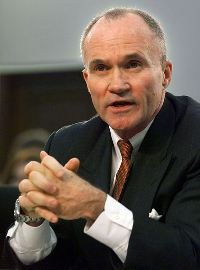
Ray Kelly Heard "Allegations of Improper [Marijuana] Arrests" Oh Really?
Only One Month Left Until Drug Policy Reform Conference

The Reform Conference is just a month away – have you secured your spot yet?
Click here to register to attend.
If you haven’t, you should soon. Booking your travel a month out will save you money. And you won’t want to miss what former New Mexico Governor Gary Johnson and current California Lieutenant Governor Gavin Newsom have to say at the Opening Plenary!
The rest of the conference program is packed full with trainings, roundtable discussions addressing controversies within the movement, and panels exploring and sharing innovative approaches to reform challenges. Thursday evening you can stand up for justice at the No More Drug War rally at nearby MacArthur Park, hosted by dozens of local California organizations and emceed by KPFK radio personality Lalo Alcaraz.
And the activities and highlights don’t stop there…
Very soon we’ll be announcing three special Mobile Workshops – learning sessions that will take a select group of conference-goers out of the hotel and into the local community.
You’re also invited to host informal Community Meetings of your own during the conference. These meetings are meant to be your opportunity to organize reformers around action plans. They take place in open session rooms in the mornings, evenings and at lunch.
What do these Mobile Workshops and Community Meetings have in common? They’re only available to registered conference attendees – and they’ll be limited by space availability!
So register now…and I’ll see you in Los Angeles!
Stefanie Jones
Event Manager
Drug Policy Alliance
Conference: Drugs and Drink in Asia
Conference organized by the David F. Musto Center for Drug Policy Studies, at Shanghai University.
Canada Supreme Court Okays Safe Injection Site [FEATURE]
NORML Night: The Marijuana-Logues at Arlington Drafthouse (DC area)
Performances Friday and Saturday night.
NORML Night: The Marijuana-Logues at Arlington Drafthouse (DC area)
Performances Friday and Saturday night.
New Ken Burns PBS Documentary Brings "Prohibition" Lesson to Modern America
New Ken Burns PBS Documentary Brings "Prohibition" Lesson to Modern America
More Politicians Joining the Call to End "War on Drugs"
Cops Who Fought "Drug War" Say It's Time for Legalization
WASHINGTON, DC -- As more politicians and world leaders declare willingness to consider ending the "war on drugs," a group of law enforcers who fought that war says a new Ken Burns PBS documentary about alcohol prohibition premiering Sunday provides an important lesson for today's prohibition on marijuana and other illegal drugs.
"Does anyone think making the dangerous drug alcohol illegal actually decreased the harm associated with its use, abuse and distribution?" asked Neill Franklin, a retired Baltimore narcotics cop who now heads up Law Enforcement Against Prohibition (LEAP). "Just as then, today's prohibition on drugs doesn't accomplish much to reduce harmful use and only serves to create gruesome violence in the market where none would exist under noncriminal regulation. Legalizing these drugs will make our streets safer by reducing the crime and violence associated with their trade, just as when we re-legalized alcohol."
Many current and former elected officials are calling for a re-evaluation of the "war on drugs" and a growing number are even suggesting that marijuana and other drugs should be legalized. For example, last month, Mexican President Felipe Calderon made headlines by saying - in light of an uptick in cartel attacks - that the U.S. should look at "market alternatives" for drug supply if demand can't be reduced.
Advocates are pointing out the parallels between the repeal of alcohol prohibition and today's debate about ending the "war on drugs." For example, one factor that led to the demise of alcohol prohibition was its enormous pricetag for taxpayers during the Great Depression. Today's rough economic climate is leading more politicians to criticize the growing cost of the "war on drugs."
LEAP's Franklin said, "The one major difference between the two prohibitions is that our wise grandparents came to grips with the failure of their experiment to ban alcohol after just 13 years, while the 'drug war' that President Nixon declared 40 years ago is still being prosecuted, more harshly and expensively than ever. It's about time more of our political leaders start to think about an exit strategy."
Other influential leaders and groups recently issuing calls to move away from prohibitionist drug policies include the NAACP, former U.S. President Jimmy Carter, former U.N. Secretary General Kofi Annan, former U.S. Secretary of State George Shultz, former U.S. Federal Reserve Chairman Paul Volcker, the Washington State Democratic Central Committee and the UK's Liberal Democrat Party.
Law Enforcement Against Prohibition (LEAP) represents police, prosecutors, judges, FBI/DEA agents and others who want to legalize and regulate drugs after fighting on the front lines of the "war on drugs" and learning firsthand that prohibition only serves to worsen addiction and violence. More info at http://www.CopsSayLegalizeDrugs.com.
# # #
FOR IMMEDIATE RELEASE: September 29, 2011
CONTACT: Tom Angell - [email protected]

Why Mandatory Minimum Sentencing is Wrong and Bad
[inline:scales-small.jpg align=right caption="scales of justice tilted to one side"]
Reason TV, via Andrew Sullivan's The Dish:
Why Do We Keep Talking About Prohibition?
Rhode Island Governor Nixes Medical Marijuana Dispensaries
How Accurate is Cannabis Testing? Ring Test Assesses the Labs
How Accurate is Cannabis Testing? Ring Test Assesses the Labs
California NORML Release - Sep. 26, 2011
How Accurate Is Cannabis Potency Testing? California NORML and Project CBD release the results of the first "Ring Test"Â to assess the accuracy of analytical laboratories
Mixed findings show strengths and problems among analytic testing services
In the winter of 2010/11, California NORML and Project CBD initiated a "Ring Test" to assess the accuracy of the numerous analytical cannabis testing laboratories that have recently emerged to serve medical marijuana collectives, breeders, growers and patients.
Results of the study, which was coauthored by California NORML director Dale Gieringer and Dutch scientist Dr. Arno Hazekamp, are reported in the Autumn 2011 issue of O'Shaughnessy's, the Journal of Cannabis in Clinical practice on pages 17-18, posted at:
http://www.canorml.org/RingTestOShaughnessys_Aut11.pdf
"We embarked on a parallel study of cannabis testing labs to shed light on a significant, unresolved issue within the fledgling medical marijuana industry in California and other states,"Â says Gieringer, "We wanted to know how reliable is the information provided by analytical cannabis labs? Are they adequately serving the needs of medical marijuana patients and providers?"
Ten cannabis labs in two states agreed to participate in an anonymous, side-by-side study to assess the accuracy and precision of their collective work. The participating labs employed a variety of analytical techniques and instrumentation to conduct their analysis.
Six samples drawn from the same sources were tested by each lab: four herbal samples, including one CBD-rich strain, and two tinctures (alcohol extracts).
Results of the Ring Test
- In most cases, lab results were consistent to within plus or minus 20% on replicate samples (and often within 10%). For example, a sample with 10% average THC content might range from 8% to 12% in different tests. This is similar to the accuracy of the government's potency testing program run by NIDA's lab in Mississippi, as well as comparable government-regulated industries such as environmental testing. Conclusion: The precision and proficiency of a majority of cannabis testing labs compared favorably to other analytical testing industries.
- While a majority of labs performed within acceptable limits, some reported results that deviated substantially from the average, with unacceptable deviations of more than 25% from the mean. Three of the ten labs performed unacceptably on half of the tests. Conclusion: Not all cannabis testing labs are performing up to par; consumers are well advised to check the reputations and professional experience of labs they work with, and to arrange backup tests from more than one lab where accuracy is essential.
- Both gas chromatography (GC) and liquid chromatography (LC) instrumentation yielded accurate results in testing of raw cannabis samples, with comparable and acceptable repeatability for identical samples. Conclusion: Both GC and LC instrumentation should be considered reliable for cannabis potency analysis.
- In the case of the tinctures (alcohol extracts), there were significant discrepancies in the results found by different labs, with GC generally reporting significantly higher potencies than LC. This made it impossible to reliably estimate the actual potency of the original samples. Conclusion: More work is required to assess the accuracy of current methods for testing cannabis tinctures, edibles and other extracts.
- No analytical testing lab demonstrated precision that supports reporting cannabinoid results to two decimal places. By unnecessarily reporting results to the one-hundredth percentile, some labs created an unrealistic illusion of precision that raises false expectations regarding the degree to which accuracy is possible, given the 20% variation observed. Conclusion: Labs should re-evaluate the precision level at which results are reported.
The Project CBD / CA NORML Ring Test report is accompanied by a list of ten questions that patients and providers might want to ask when choosing to work with an analytical testing lab.
"Analytical labs provide an important service for the medical marijuana community,"Â says Sarah Russo, Project CBD's outreach coordinator. "We hope that cannabis labs, while competing for market share, will cooperate to improve their methods and maintain a high performance standard. Medical marijuana patients and providers would be well served by labs that share information and assist each other in a collegial manner."
For more information contact: Dale Gieringer at California NORML, [email protected] or Project CBD,[email protected]
Do You Read Drug War Chronicle?
Pagination
- First page
- Previous page
- …
- 306
- 307
- 308
- 309
- 310
- …
- Next page
- Last page

